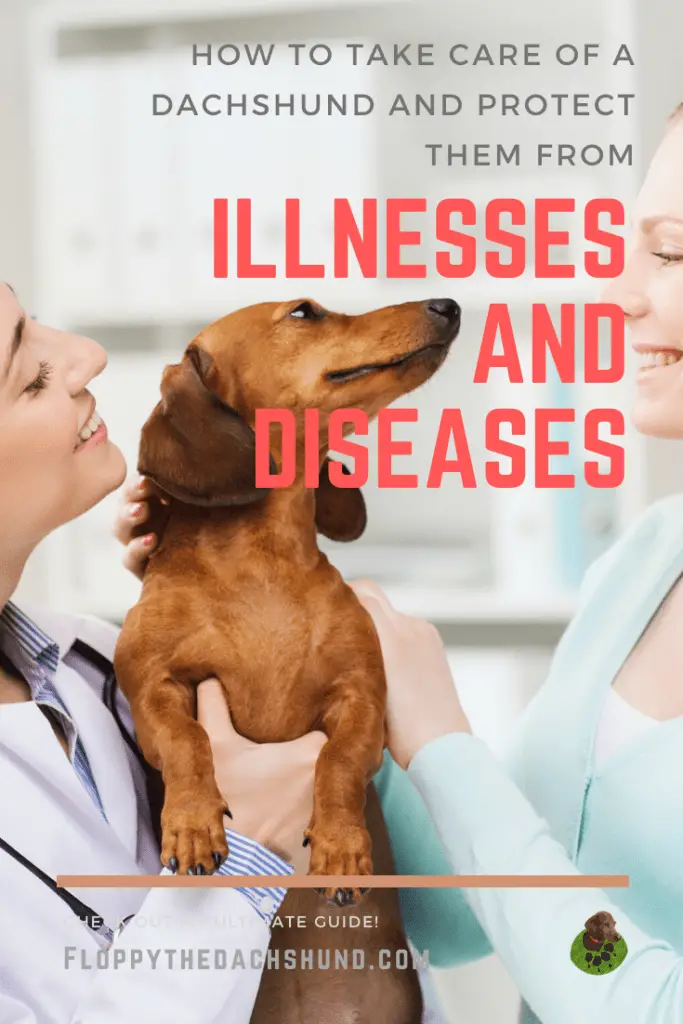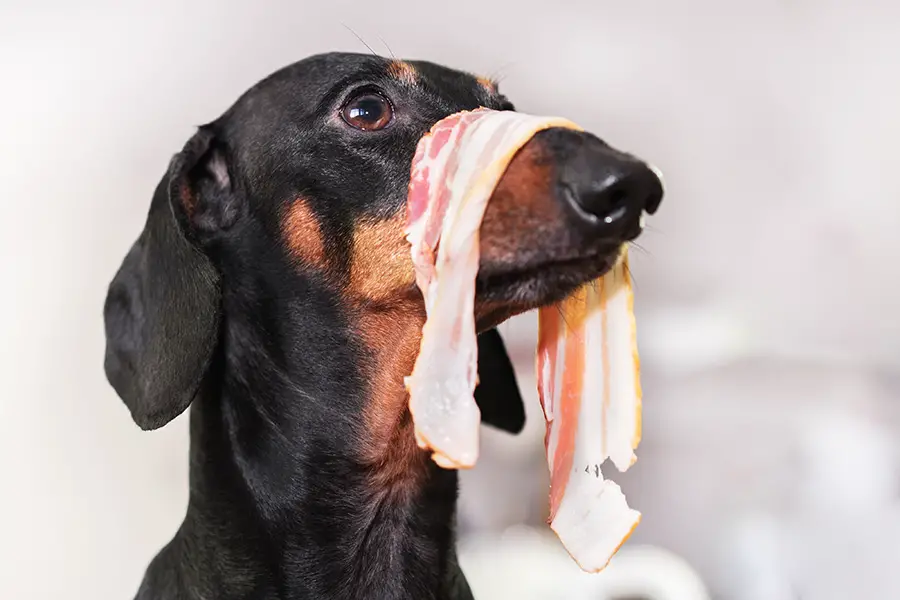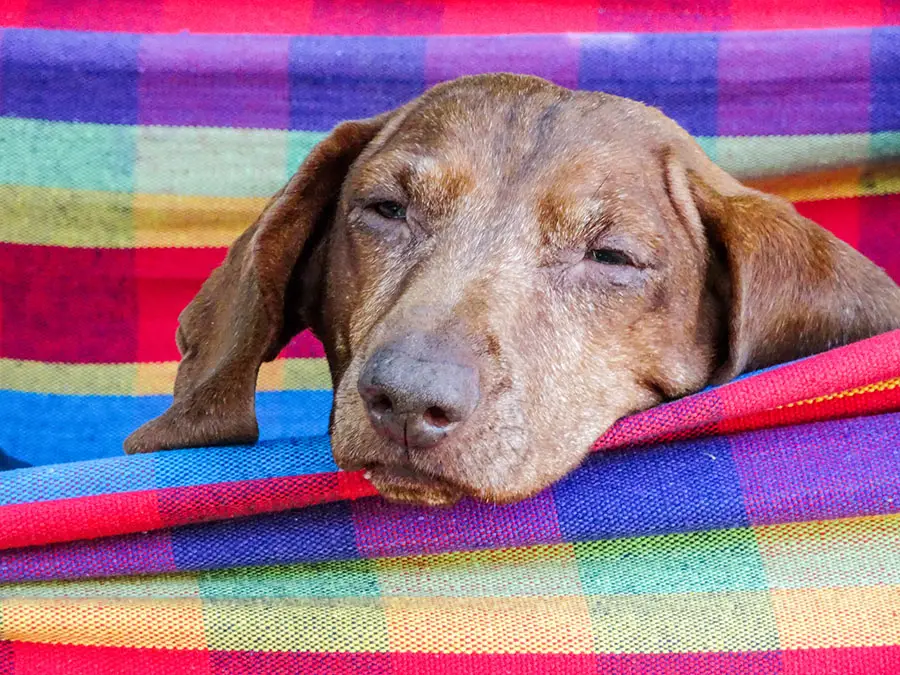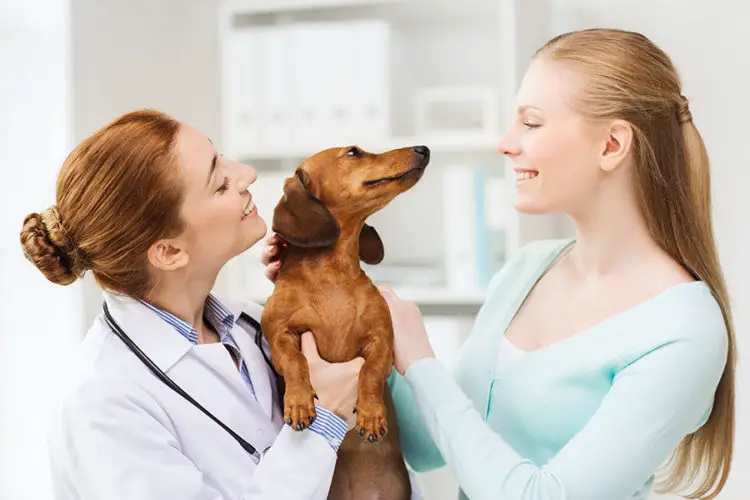Before adopting a dachshund, you need to know how to care for us in order to ensure our welfare. Dog owners often end up with guilt when their dog gets sick or dies of a physical illness that could have been prevented with the right knowledge. Knowing the breed that you are about to adopt and how vulnerable they are to specific health conditions is essential to taking care of them the right way. Here’s a list of things you need to keep in mind while taking care of a dachshund.
Keep Them Clean
We need to be bathed every six weeks or so, to keep us clean and feeling fresh. We don’t particularly love bathing so we might make a fuss. However, we feel happy and refreshed after getting all the grease off of our bodies and it’s good to be clean! If bathed regularly, then we do not smell. We have a strong sense of smell and if we dislike our odor, we might do some excessive digging and rolling in the sand to get rid of it.

We have a small mouth that fits all of our 42 teeth and we’re food lovers. Naturally, if our teeth are not brushed every day, we can end up with dental problems and more importantly, smelly breath.
Watch Out for Back Issues
IVDD and other back problems are one of the most common illnesses among dachshunds. One out of every four of us is likely to suffer from IVDD. We are short-legged dogs with a broad chest and long back. We are structured this way to make us great badger hunters; however, this impacts our health as well.
Part of caring for a dachshund is checking that our spine is not subjected to too much pressure. You need to replace steps with ramps, sleep on a small heightened bed or attach it to a ramp, and train us not to jump around the house as it can damage our backs. You also need to learn how to hold a dachshund right.
Patella Luxatio
We dachshunds have short legs compared to other breeds. Our short legs can change the position of our knee caps and make us more prone to patellar luxation or loose knees. We need to be fed a balanced diet, complete with supplements and measured portions to avoid the condition. Limping and putting too much pressure on some legs could be signs that we are developing a problem and must be taken to the vet, who is likely going to want to operate on our knees if we are diagnosed with this condition.
Do Not Let Them Get Obese

We like food and we are stubborn. So if you’re eating something and we’re staring at you, don’t be surprised or annoyed; we’re just hoping to get a bite of whatever is being had. Now it’s up to you to be strong and not give us the food. If every time you eat something, you pass a bite to us, then we are likely to get fat, and obese dachshunds are much more prone to back issues than a healthy dachshund. Moreover, we’ll get into the habit of staring at you or snatching food from your plate.
Take Them To a Vet in Case of an Allergy
Dachshunds have a strong immune system, yet we can be allergic to specific substances. When we get an allergy, we start losing hair and our skin can get dry and flaky. If you see patches of hairless skin and find me itching my skin all day long, it could be the result of an allergy.
Finding the cause of the allergy is essential so that your dachshund is not subjected to it again. If we experience an allergy over and over, it could harm our overall health. Corn, rice, soy, and proteins like meat, dairy, etc. are the most common food substances that can cause an allergy in a dachshund. Dust, the fur of some other animals, smoke, prescription drugs and cosmetic products like shampoos can cause an allergy as well.
When we are already suffering due to allergies, we are sensitive and can end up infected by Malassezia, which can lead to skin diseases and inflammation around our eyes. Some allergy symptoms that you can look out for include rashes and itchiness, puffy eyes, a bad smell, hair loss, appetite loss, swelling, vomiting, and diarrhea.
Do Not Tap Them On The Nose
Smacking a dachshund can aggravate them and increase the possibility of them retaliating with aggression. They can get scared if you even tap their nose, especially again and again, and they may retaliate. While you might be tapping our nose playfully and not to harm us, it could lead to an injury. Our nose is a sensitive area, made of cartilage and tissue and it supplies blood through arteries and veins. Tapping, smacking, or god forbid, punching us on the nose can lead to bleeding and pain.

Keeping an Eye on What They Eat
Dogs can chew on paper, rubber, jewelry – really anything, making it imperative that you keep small things out of your dog’s reach.
When we become adults, our digestive system is much more efficient than when we were puppies. However, an intestinal blockage can occur if I swallow any objects that cannot be digested easily. Common signs that something is wrong are diarrhea, vomiting, dehydration, weakness, loss of appetite, pale gums and bleeding. Moreover, if our vomit smells of poop, then you need to immediately take us to the vet. Obstruction in the intestinal passage can lead to a rupture, perforation, peritonitis, and even death.
- Upper gastrointestinal blockage can cause projectile vomiting.
- A lower gastrointestinal blockage causes bloating tummy and vomit that smells like poop.
Train a Dachshund With Patience
Extra care must be taken when training a dachshund. We are independent by nature and our training should not make us feel dominated by someone else. We are not the most docile and submissive dogs and can be extremely stubborn, which is why most dachshund owners complain that we are hard to train. Well, you just need to be patient enough to keep trying until we learn how to do it right. Once we have been trained well, we will try our best to keep destructive behavior at bay.
Separation Anxiety
Speaking of destructive behavior, our separation anxiety must be kept in check by our parents. Teach us how to be alone and never leave an adult dachshund for more than four hours without supervision. When younger, we can literally die due to excessive crying and must not be forced to do anything that stresses us out.
Conclusion
These are some of the issues that dachshund owners often experience with their beloved pets. However, the problems are not limited to just this list. A dog parent should only take up the responsibility of caring for a dog if they can provide them with the love, care, and attention that they need.
See Also My Other Related Posts:
Don't Forget To Make Your Dachshund Happy And Check Out Dachshund Favorite Products!
In my article, I reveal all the information about Dachshund’s Favorite Food. The best dachshund food available on the market: Most Nutritious And Delicious Dachshund Food Products Available On The Market.
If you want to learn what are the latest trends in Dachshund fashion check my article: Dachshund’s Fashion. How to choose the dachshund clothes that just simply fit: Finding the Right Clothes for Your Dachshund.
If you want to prepare your beloved Dachshund for cold weather check out my article: Jackets And Outdoor Gears For Dachshund.
To go out with your dachshund, but not choke him to death check out my article about harnesses: Finding The Best Harness for Dachshund When you are ready to get one check the options available on the market Choosing The Right Harness For Your Dachshund.

